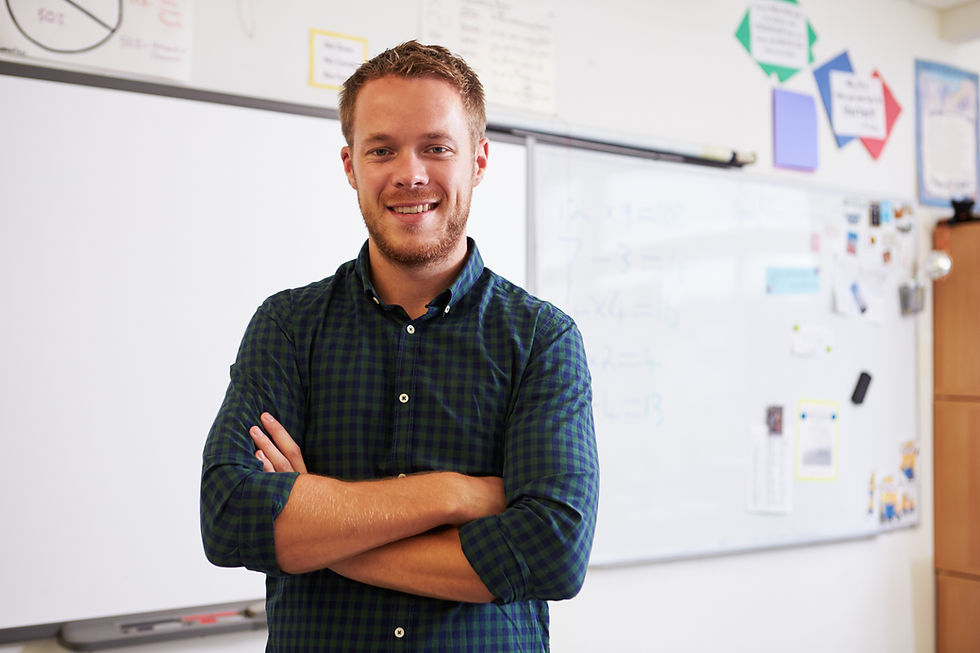From Skeptic to Superuser: How One Teacher Changed His Practice with Starlight
- Adam Sturdee
- Oct 15, 2025
- 3 min read

When Dan first heard about Starlight, he wasn’t convinced. “I’m a teacher, not a machine,” he told his colleagues. “I already have enough screens in my life.” Like many of us, he valued human connection above all — the spark of interaction that can’t be automated. But today, Dan records every single lesson he teaches. His journey from skeptic to superuser tells us something important about what happens when AI becomes a mirror rather than a manager.
At first, Dan admits, he treated Starlight like a game. “I saw that little feedback sheet and thought, I’m going to beat this system. I wanted to get five out of five on every category.” What started as curiosity turned into a quiet transformation. In trying to “win” the algorithm, Dan began to embed new habits — richer questioning, sharper modelling, better pacing. His students noticed. One day, a boy who usually wrote three-word answers gave a fully developed GCSE response. “It was like he was saying, see, sir — you’ve got nothing to correct now. That’s when I realised it was working.”
The insights weren’t always comfortable. In one lesson he thought had gone badly, Starlight pointed out something else entirely: that he’d modelled resilience by handling it calmly. “It reminded me,” Dan said, “that not every lesson has to be perfect. Sometimes what students learn is how you deal with imperfection.”
Over time, recording every lesson has changed the way Dan sees teaching. He now spots small patterns — how often he follows up student answers, how much time he gives for thinking, how he phrases praise. “It’s made me more conscious,” he reflects. “I’m not teaching differently because a computer told me to; I’m teaching differently because I’ve seen the difference it makes.”
And then there’s the practical side. Starlight’s Teacher Toolkit has become, in Dan’s words, “a lifesaver.” Each recorded lesson generates recap emails for absent students, retrieval questions for next time, and lists of key vocabulary — all ready to copy and paste. “When a student says, ‘I missed last lesson,’ I can just say, ‘Check your inbox.’ I’d never have had time to do that before.”
Dan’s story echoes what research on Transcript-Based Lesson Analysis (TBLA) has shown globally: when teachers have access to an objective record of their practice, they begin to notice things they couldn’t before — not grand revelations, but small, daily refinements that accumulate into growth. In his words, “It’s not about chasing scores anymore. It’s about making little changes, every lesson, that add up.”
For someone who once swore he didn’t need more technology, Dan now calls recording his lessons “the most useful professional habit I’ve ever developed.” His message to colleagues is simple:
“You don’t have to be perfect, and you don’t have to be techy. Just press record — and see what you notice.”
Starlight – Spark Insight.
🎥 Subscribe to our channel here: https://www.youtube.com/@Star21-ai
🌐 Read more on our blog: www.coaching.software
💡 Explore the platform: www.starlightmentor.com
🐦 Follow us on X: @star21starlight
The Insight Engine is written by Adam Sturdee, co-founder of Starlight—the UK’s first AI-powered coaching platform—and Assistant Headteacher at St Augustine’s Catholic College. This blog is part of a wider mission to support educators through meaningful reflection, not performance metrics. It documents the journey of building Starlight from the ground up, and explores how AI, when shaped with care, can reduce workload, surface insight, and help teachers think more deeply about their practice. Rooted in the belief that growth should be private, professional, and purposeful, The Insight Engine offers ideas and stories that put insight—not judgment—at the centre of development.



Comments